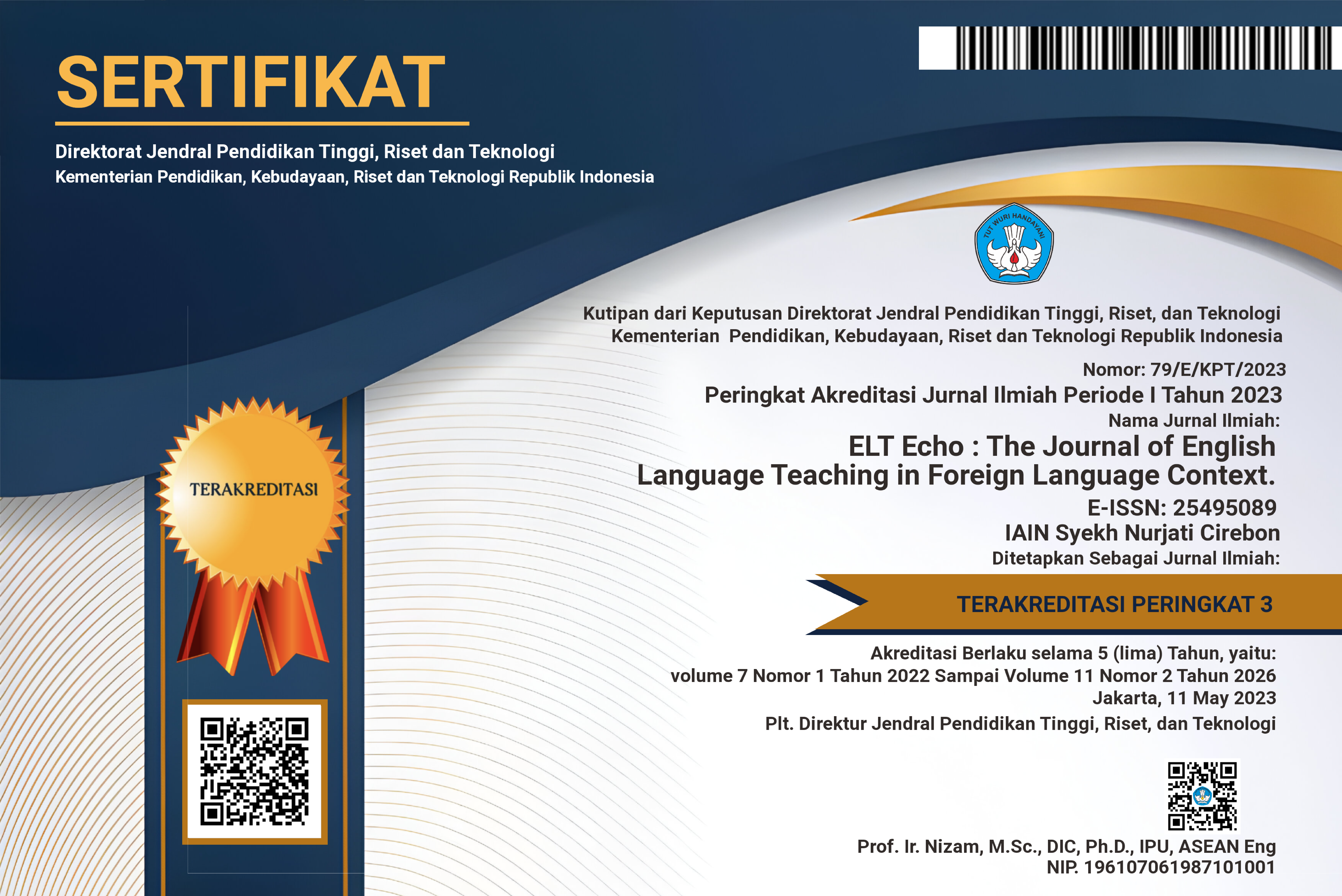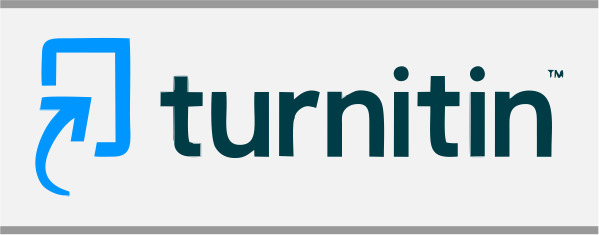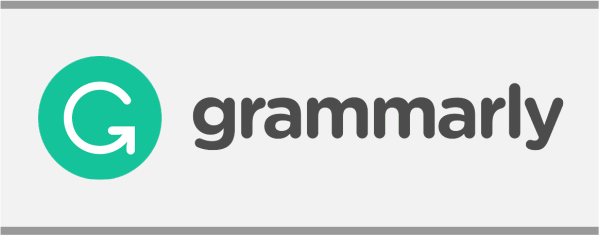CRITICAL THINKING ASPECT OF SUCCESSFUL ENGLISH LEARNERS IN THE 21ST CENTURY AT SENIOR HIGH SCHOOL
(1) IAIN Syekh Nurjati
(2) IAIN Syekh Nurjati
(3) IAIN Syekh Nurjati
(*) Corresponding Author
Abstract
the learners’ skills of communication, collaboration, creative and critical thinking, information literacy, media literacy, technology literacy, leadership, initiative, productivity, social skill and flexibility are the important requirements in this 21st century. Those skills can be developed through learning a foreign language. A successful language learner covers several characteristics, which quite similar with the characteristics of a bilingual or multilingual. A lot of research had explored the characteristics of a successful language learner, without specifying the skills involved. The aim of this research is to analyze the profile of successful English learners on their critical thinking aspect. The method of this research is qualitative and the data is collected through interview for both teacher and learners. The result shows that the successful learners are commonly reached the standard of a good critical thinking based on the the theory adapted.
Keywords
Full Text:
PDFReferences
Abutalebi, J., & Green, D. W. 2008. Control Mechanism in Biliingual Language Production : Neural Evidence from Language Switching Studies. In D. W. Jubin Abutalebi, Language and Cognitive Processes. London: Psychology Press.
Asma, Boukerkour. 2016. The Effects of Learning English as Foreign Language on Learners' Behavior. Batna: University of Biskra.
Badrun. 2019. Daftar Peringkat SMA-MA Terbaik Kota Cirebon tahun 2019 (https://blog.kartunmania.com, retrieved 1 June 2020).
Bardack, S. 2010. Common ELL Terms and Definitions. Washington DC: English Language Learner Center.
Boholano, H. B., 2017. Smart Social Networking: 21st Century Teaching and Learning Skills. Research in Pedagogy, 7, 21-29. doi: 10.17810/2015.45
Creswell, J. W. 2012. Planning, Conducting, and Evaluating Quantitative and Qualitative Research (4th ed.) Boston: Pearson.
Dewi, Anita. 2013. English As An International Language: An Overview. Melbourne: Monash University.
Erdogan, Vacide. 2019. Integrating 4C Skills of 21st Century into 4 Language Skills in EFL Classes. International Journal of Education and Research.
Fraenkel, J. R., Wallen, N. E., & Hyun, H. H. 2012. How to Design and Evaluate Research in Education. New York: McGraw-Hill.
Mehisto, P. The Cognitive Benefits of Bilingualism in Bilingual Education: Cognitive Benefits and Policy into Practice. Cambridge International Examination (www.cambridgeassessment.org.uk/singapore, retrieved 15 April 2020).
Robert, M. S. 2017. The Bilingual World: A Study on Bilingualism and Its Cognitive Effect. Universitat Pompeu Fabra Barcelona.
Schleicher, A. 2015. Schools for 21st-Century Learners. International Summit on the Teaching Profession, OECD Publishing.
Trilling, Bernie., Fadel, Charles. 2009. 21st Century Skills: Learning for Life in Our Times. San Fransisco: Jossey Bass.
DOI: 10.24235/eltecho.v6i1.8178
Article Metrics
Abstract view : 85 timesPDF - 16 times
Refbacks
- There are currently no refbacks.
Â
This Journal is indexed by:
Â

This work is licensed under a Creative Commons Attribution 4.0 International License.










